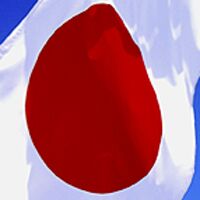
An Earthquake of a Different Kind Rocks Japan
One day it was bright and sunny. The next, the earth shook and a massive wall of water washed away whole cities. Now multiple power plants are fighting to prevent nuclear meltdown, the economy is being thrust deeper into the risk zone, and thousands of people are dead.
Sadly, this is Japan. Earthquakes are its history, and—in a sense—a prophecy of its future.
Temblors and tsunamis are woven into the national psyche of Japan, says Kerry Smith, professor of history at Brown University. The Japanese think in terms of earthquakes—and the earth-shaking changes they often result in.
The history of Japan is intricately connected to earthquake activity, especially the big ones like the 8.9 magnitude crusher that smote Japan on Friday. They often become mileposts marking sweeping changes in national consciousness, economic direction, geopolitical orientation, and so on.
Some of the biggest turning points in Japanese history have clustered around earthquake disasters. In 1855, a massive earthquake leveled Tokyo, killing thousands of people. Historians blame it, as much as Western gunships, for the final end to two centuries of isolation under the Tokugawa shogunate. The even bigger Kanto earthquake of 1923 coincided with the rise of Japanese militarism and the Cult of the Emperor. Even as recently as 1995, the Kobe quake marked a drastic turn in the Japanese economy and the onset of national deflation.
“The natural history of the country [is] embedded in the social history and to some extent the political history of Japan,” says Smith “[T]hose are markers not just of disaster … but also of political change … and economic change as well.”
It is understood that massive shocks and crises often lead to big changes. Japan has a history of radical course changes clustered around earthquake epicenters. And this time is proving to be no different.
For example, for the first time since World War ii, Japan’s military was deployed domestically to maintain order and help with rescues. It is a big event for a nation with a pacifist constitution. Japan’s self-defense forces are quickly losing their postwar stigma.
Relationship changes are occurring with Japan’s neighbors, too.
When China’s Sichuan province was devastated by an earthquake in 2008, it was a historic event. Japan immediately offered and dispatched a rescue team. Japanese corporations like Honda and Panasonic donated millions to relief funds. Tokyo even sent a naval vessel to China (for the first time since World War ii) to help. And China accepted Japan’s help.
Now, with Japan struggling to recover from a similarly dire disaster, for the first time China has returned the gesture. And Japan has gratefully accepted. As Bloomberg reports, officials in Tokyo and Beijing have put aside disagreements over historic disputes and come together in a common cause. Even Chinese newspapers have stopped criticizing Japan and have shifted to exploring what China could learn from Japan’s response.
“If Asia is going to increase regional cooperation, the leaders of Japan and China must have a decent working relationship,” writes Bloomberg’s William Pesek. “Last week’s earthquake offers a chance for a fresh start.”
The earthquake may prove to be a significant moment in regional cooperation. South Korea and Russia have stepped up to become two of the top three contributors of earthquake aid to Japan. Old war memories are being forgotten. New alliances are being forged.
Even Japan’s relationship with America may be affected. The earthquake recalled some bitter history between the two countries. March 10 happened to be the anniversary of the great firebombing of Tokyo by American aircraft in the closing days of the war—an event in which 100,000 people burned to death in the inferno that reduced the city to rubble. Comparisons are being made with the March 11 earthquake destruction.
Economically, Japan’s relationship with America may be altered too. Japan is America’s second-most important lender. It holds over $800 billion worth of U.S. government debt. Now, instead of being a reliable source of money for America, it may be forced to sell its U.S. debt to fund reconstruction. If this happens to any significant degree, the U.S. dollar will suffer its own gigantic earthquake.
Conversely, it is easy to envision a scenario in which Japan would embrace a closer relationship with China. China would be happy to have Japan open up its large middle-class consumer market in return for reconstruction money. The integration of the Japanese and Chinese markets would be beneficial to both. China needs a developed export market to diversify away from its reliance on overly indebted American consumers. And Japan wants to get its thrifty citizens spending money again, even if on inexpensive Chinese imports.
The history of Japan is the history of earthquakes, but not just of the physical kind.
There are some moments at which the earth seems to move beneath your feet. You can almost sense the motion, the tremor, the aftershock, the change. This may be one of those moments. And the repercussions, like the tsunami, will reverberate far beyond the island nation.
A new global order is emerging. Those who follow the Trumpet regularly know that an Asian alliance—one that does not include America, and is hostile to it—is emerging. The recent earthquake in Japan may only speed it up.
